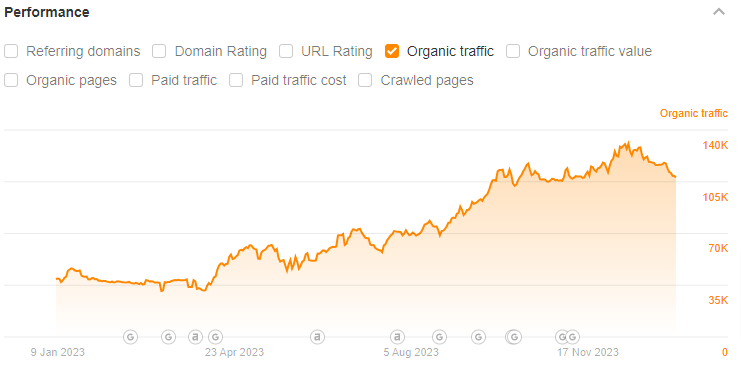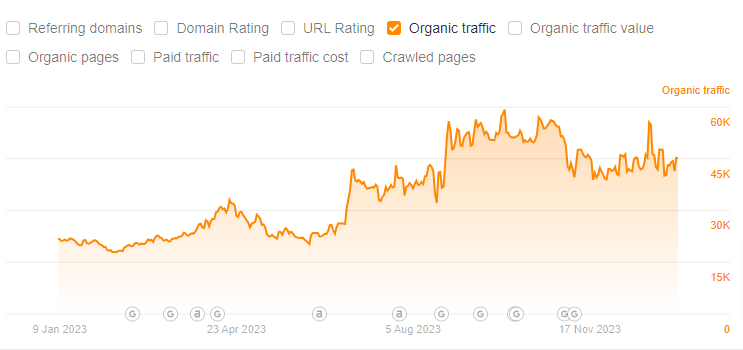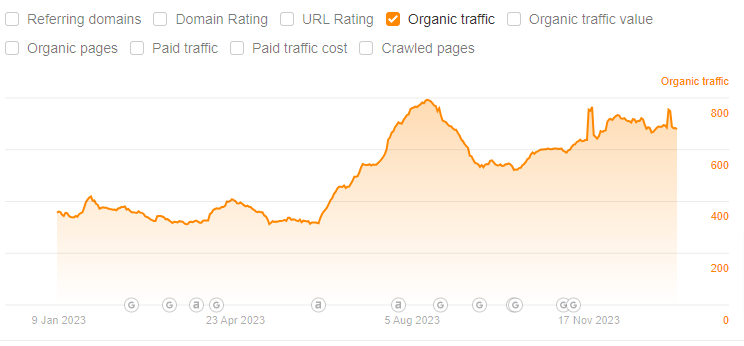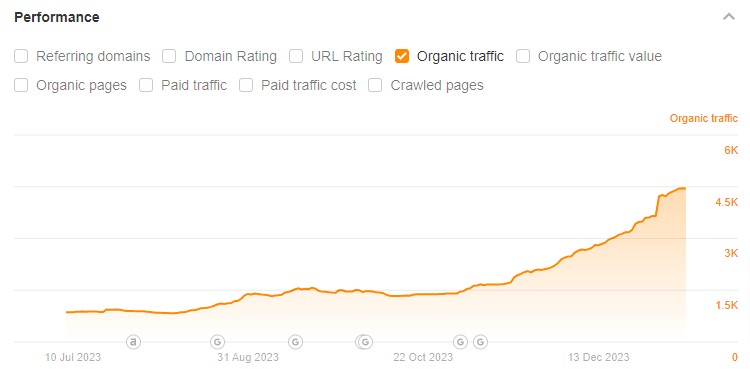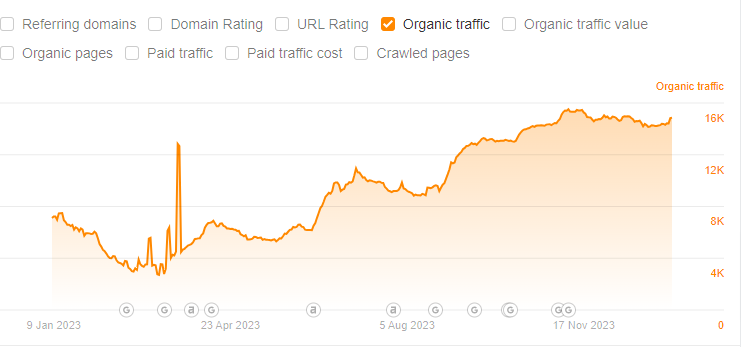When trying to find new keywords to target for your business, one of the best places to look is your competition. By analyzing what keywords they are targeting, you can get a good idea of which keywords would be most effective for your business. How do you identify a Keyword Research Competitor Analysis? We will discuss everything, but first, let us cover the basics.
30-Second Summary
This blog features insights on several aspects of Keyword Research Competitor Analysis. You will get to know why it’s necessary to perform keyword competition analysis, different keywords you can research that your competitors are targeting, how to find various types of competitors’ keywords, steps to conduct competitor keyword analysis, and so on.
What Is Keyword Competition Analysis?
Regarding SEO, your goal is to rank as high as possible in the search engine results pages (SERPs) for specific keywords. However, you’re not the only one aiming for that top spot.
Your competitors are also trying to rank for those exact keywords. It is where keyword competition comes in, which measures how difficult it will be to rank for a given keyword.
The higher the keyword competition, the more difficult it will be to rank for that keyword. Some factors contribute to keyword competition:
- The no. of websites competing for that keyword
- The quality of those websites
- The money and resources they’re willing to invest in SEO
There are some ways to do Google keyword competitive analysis. By understanding keyword competition, you can better assess your chances of ranking for specific keywords and make wiser decisions about which keywords to target.
Why You Need To Do Keyword Competition Analysis
Have an intelligent understanding of the latest trends and happenings in SEO and what your competitors are doing. Among the best ways to stay ahead of the competition is to perform competitive analysis regularly.
By understanding your competitor’s strengths and weaknesses, you can identify areas where you can improve your SEO campaigns. Competitive analysis can be time-consuming, but it’s worth the effort. Here is why you need to do it.
-
Understand the Marketplace
One of the main reasons for performing the competitive analysis is gaining a comprehensive understanding of the marketplace. This knowledge can reveal what’s working well for your competitors and where there might be untapped opportunities in the market, empowering you to make strategic decisions.
-
Keep an Eye On the Competition
Another significant advantage of competitive analysis is the ability to keep a vigilant eye on your competition. By understanding their strategies and tactics, you can stay one step ahead and ensure that your campaigns are more effective.
-
Improve Your SEO Campaigns
Finally, a keyword competition analysis can serve as a powerful tool to enhance your SEO campaigns. By understanding what’s working well for your competitors, you can adapt and improve your strategies, leading to more effective campaigns and better results.
Different Types of Keywords You Can Get by Competitor Analysis
After knowing what competitor keyword research is, you must understand that there are different types of keywords you will encounter. We will discuss the four main types of keywords and how to analyze their competitiveness.
- Broad Match Keywords – These are the most general keywords used to describe your product or service, like ‘shoes’ or ‘digital marketing ‘. They are typically one or two-word phrases and have a high search volume. However, they also have a lot of competition.
- Phrase Match Keywords – These are slightly more specific than broad match keywords but still have a high search volume. They tend to be three or four-word phrases and may have some competition.
- Exact Match Keywords – These are the most specific keywords you will encounter. They typically have five or more word phrases and a lower search volume. However, they also have less competition.
- Long-Tail Keywords – These are the least common ones you will encounter. They are typically six or more word phrases and have low search volume. However, they also have the least amount of competition.
How to Find Different Types of Competitors’ Keyword
Looking to analyze keyword competitiveness, let’s discuss how to find keywords you can rank for. There are different methods that you can use to find keywords that you can rank for while doing a keyword competition analysis…
- Use a Keyword Research Tool – Several different keyword research tools are available online, such as Google Keyword Planner and KWFinder. These tools will allow you to enter a seed keyword and generate a list of related keywords.
- Use a Competitor Analysis Tool – Several different google keyword competition research tools and other specialized tools are available, such as SEMrush and SpyFu. These tools will allow you to enter a competitor’s URL and generate a list of their most popular keywords.
- Use Google Suggest – You can use Google Suggest to find long-tail keywords that you can rank for. Simply enter your seed keyword into the Google search bar and scroll down to the bottom of the page. Google will suggest several related keywords that you can use.
- Use Google Trends – You can use Google Trends to find out which keywords are trending upwards. Simply enter your seed keyword into the Google Trends search bar and look at the results. If a keyword is trending upwards, more people are searching for it each month.
- Use Social Media – You can use social media to find out which keywords are being talked about the most. Simply search for your seed keyword on Twitter or Facebook and then look at the results for a keyword competition analysis.
How to Do a Competitor Keyword Analysis
Now that you understand the importance of keyword competition analysis and how to conduct it effectively, it’s time to put your knowledge into practice. Start by analyzing your competitors’ keywords and see how they can improve your SEO efforts. If you have any questions or need further assistance, feel free to reach out to us. We’re here to help you succeed in your SEO journey.
Step #1 – Leverage the Best Keyword Competitor Research Tools
Begin by choosing a reliable keyword competitor analysis tool to assist with your analysis. Ahrefs, Semrush, and Moz, are popular tools that provide valuable data on search volume, keyword difficulty, and competitor analysis.
These platforms allow you to gain comprehensive insights into your competitors’ keyword strategies and pinpoint opportunities for improvement.
Step #2 – Find Competitors against Keywords
Now, you need to identify the main competitors for your primary keywords in your industry. Look for businesses or websites that target similar keywords and have the same target audience.
You need to start searching for your primary keywords on search engines such as Google. Always identify the websites that consistently rank high in the search results for these keywords.
Additionally, utilize the tools mentioned earlier to generate a list of high volume keywords with low competition. Review the list manually to select the most relevant and appropriate competitors from the generated results.
Step #3 – Analyze Your Competitor Website Keywords
After identifying your keyword competitors, you should analyze their websites to discover the primary keywords they are targeting. Utilize tools to assess each competitor’s website and examine their most visited pages and targeted keywords.
It’s essential to focus on various types of pages, such as their homepage, service pages, product pages, product categories, and blog posts.
What’s more, pay attention to elements like meta tags and headers to observe the keywords being used and how they are incorporated. Look for common patterns and trends in their keyword usage, as well as the overall search engine optimization of their website.
Step #4 – Conduct a Detailed Keyword Gap Analysis
Conduct a keyword gap analysis to pinpoint the keywords your competitors rank for, but you need to focus on. This analysis will uncover new opportunities to expand your keyword list and attract more organic traffic.
Utilize keyword research tools from Step 1 that offer a special Keyword Gap Analysis feature to compare the keywords you’ve identified with your current targets. Identify keywords that your competitors perform well for, but you may need to look into them. These present potential keyword gaps you can leverage.
Step #5 – Scrutinize Competitors’ Keywords and Ranking Fluctuations
Review the keywords that your competitors are focusing on and assess their positions in search engine results. Identify any recurring themes or patterns in their choice of keywords and evaluate the changes in their rankings over time. This going-over will offer valuable insights into the success of their keyword strategies.
Step #6 – Gauge Keyword Relevancy & Niche-Specification
Incorporate the pertinent keywords from your analysis of competitors’ keywords that correspond with your content strategy. Prioritize keywords with a reasonable search volume and low keyword competition.
Evaluate the underlying intent of the keywords and their relevance to your products, services, or content. Select keywords that precisely represent what you provide and are expected to draw your desired audience. It’s crucial to find a middle ground between high search volume keywords and those specific to your niche.
Step #7 – Refine Your Keyword Strategy for Content
Once you’ve selected the keywords you wish to focus on, adjust your website content to align with them. Integrate these keywords thoughtfully into your meta tags, headings, URLs, and across your page content.
Maintain the natural and compelling nature of your content for readers while incorporating the specified keywords. Refrain from keyword stuffing, which involves excessive and unnatural keyword usage and can have adverse effects on your search engine rankings.
Step #8 – Keep Tracking Your Competitors’ Keywords Frequently
Analyzing the keywords used by competitor websites is an ongoing task that requires continuous monitoring of their keyword strategies. It’s essential to stay updated on any adjustments or new additions they make to their keyword targeting.
Utilize competitor keyword tracking tools or features available within the best keyword competition analysis tool to keep track of your competitor’s keyword rankings. Being informed will enable you to adjust your keyword strategy, recognize emerging trends, and capitalize on new opportunities.
Closing Note
A google keyword competitive analysis determines which keywords your competitors are targeting and how difficult it would be for you to rank for those keywords. The first step is to identify your top competitors. Use different tools to find the keywords they’re targeting. Determine how tough it is for you to rank for each keyword.
By understanding your competition, you can make informed decisions about which keywords to target and how to optimize your website for those keywords best. Thus, a keyword competition analysis is an integral part of any SEO strategy.
———————————————–
Frequently Asked Questions – FAQs
Q1 – What Exactly are Competitors’ Keywords?
Competitors’ keywords are defined as words and phrases that your competitors are using to target their audience and perform digital marketing efforts accordingly. To strategize your keyword efforts, you need to understand what type of keywords your competitors are targeting.
Q2 – Should I Engage in Competitive Keyword Research?
Conducting competitive keyword research is essential because it assists in identifying overlooked keyword possibilities, refining SEO strategies, and uncovering areas where competitors are surpassing you, allowing you to optimize for better search results.
Q3 – How Can I Identify My Search Competitors?
You can identify your search competitors by utilizing tools such as Similarweb, which furnishes insights based on actual traffic data, revealing both organic and paid competitors in your specific niche or market.
Q4 – How can I Determine the Keywords Used by my Competitors?
Utilize SEO tools featuring competitors’ keyword research and analysis to uncover keyword opportunities using the Keyword Gap Tool, analyze the top keywords on competitors’ high-ranking pages with the Organic Pages Tool, and explore targeted long-tail keyword phrases.
Q5 – What Does Competitor Keyword Analysis Mean?
Analyzing competitor keywords, also referred to as keyword gap analysis, involves a thorough analysis to uncover high-ranking keywords that your competitors target and rank for, but you need to.















